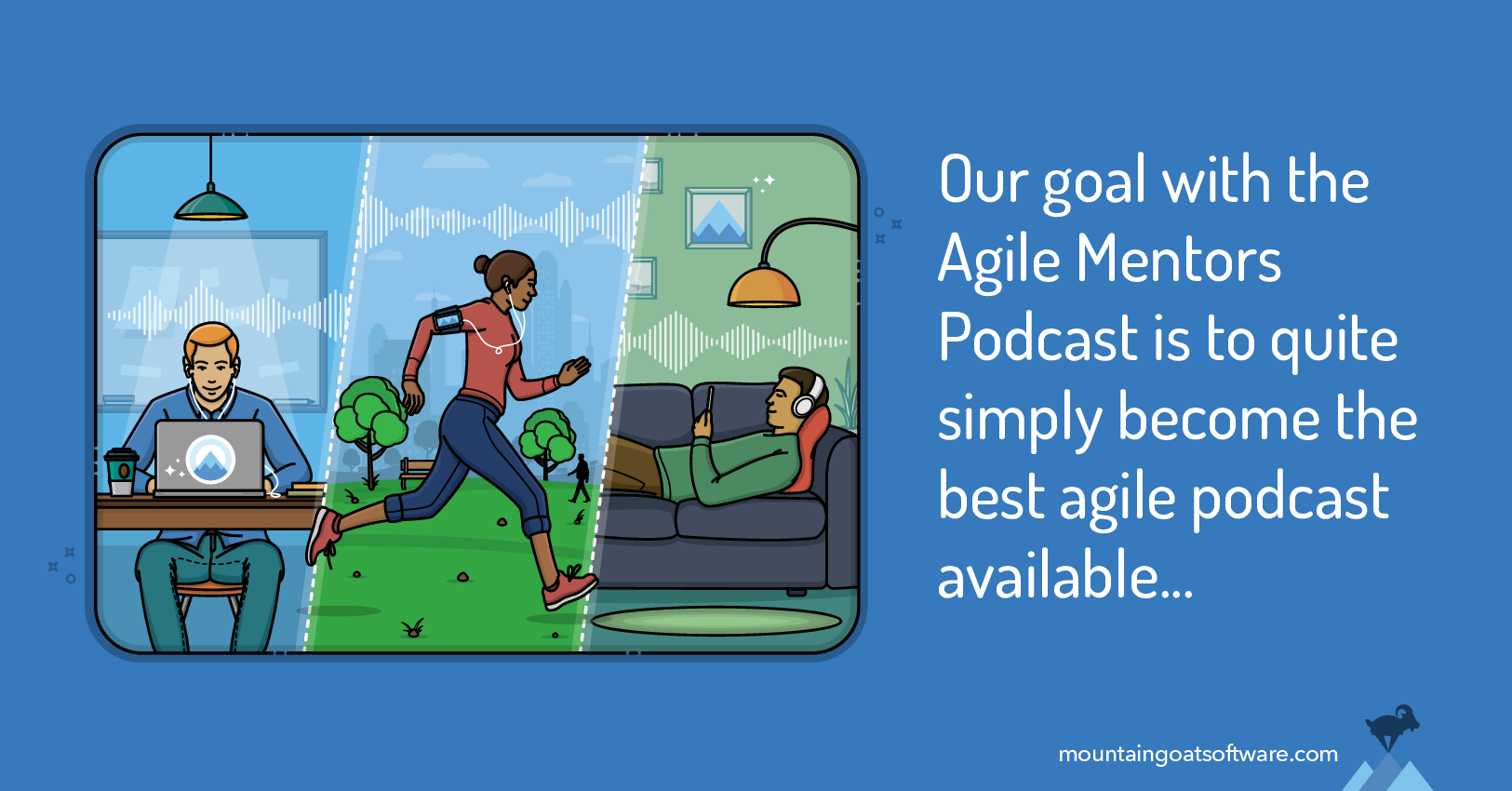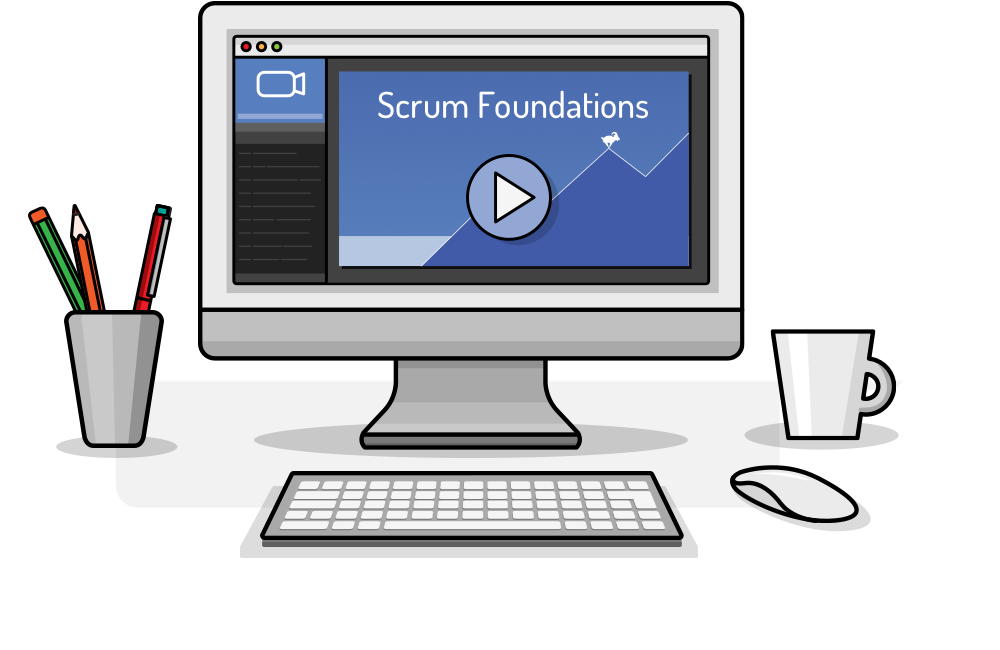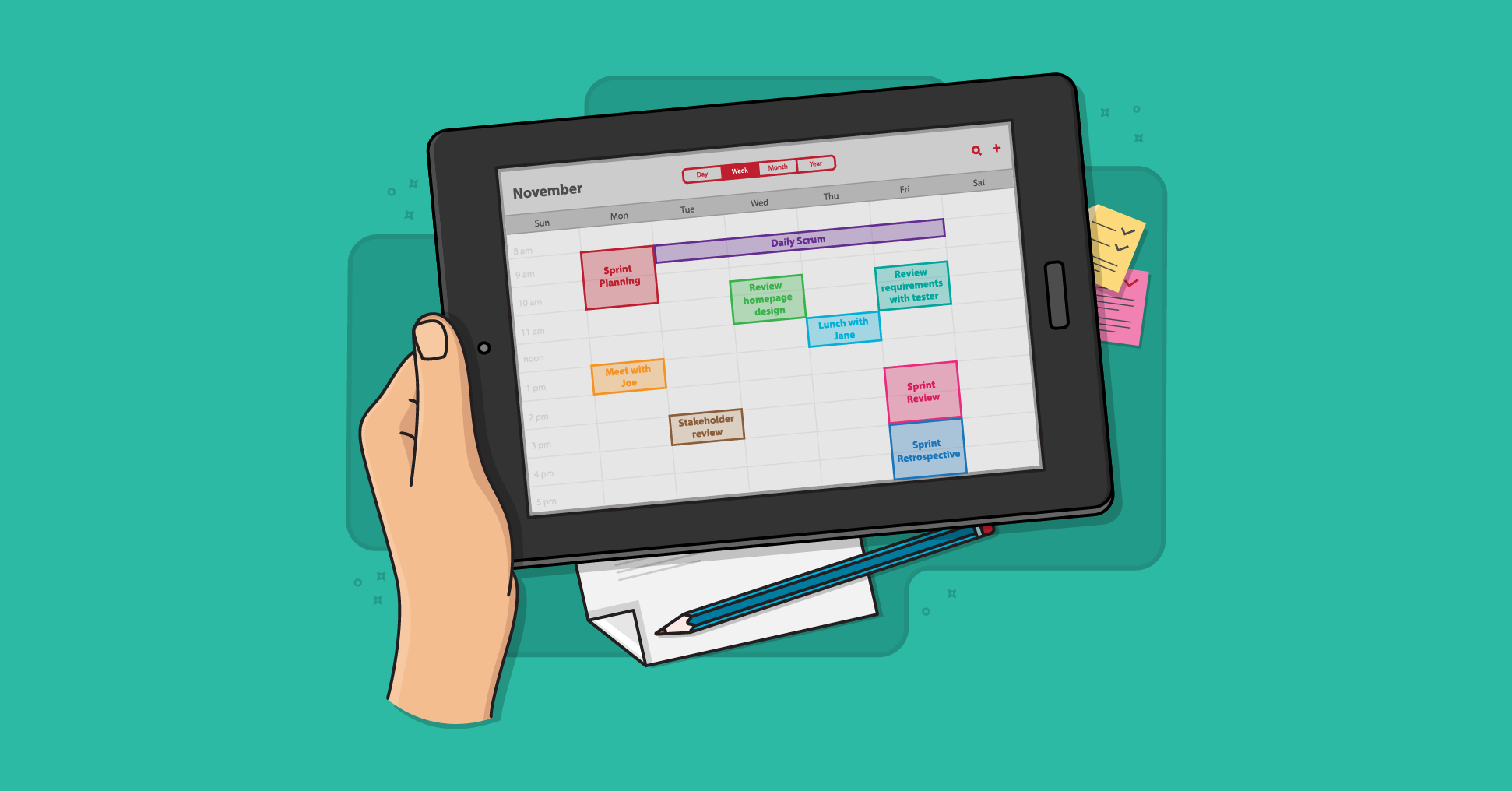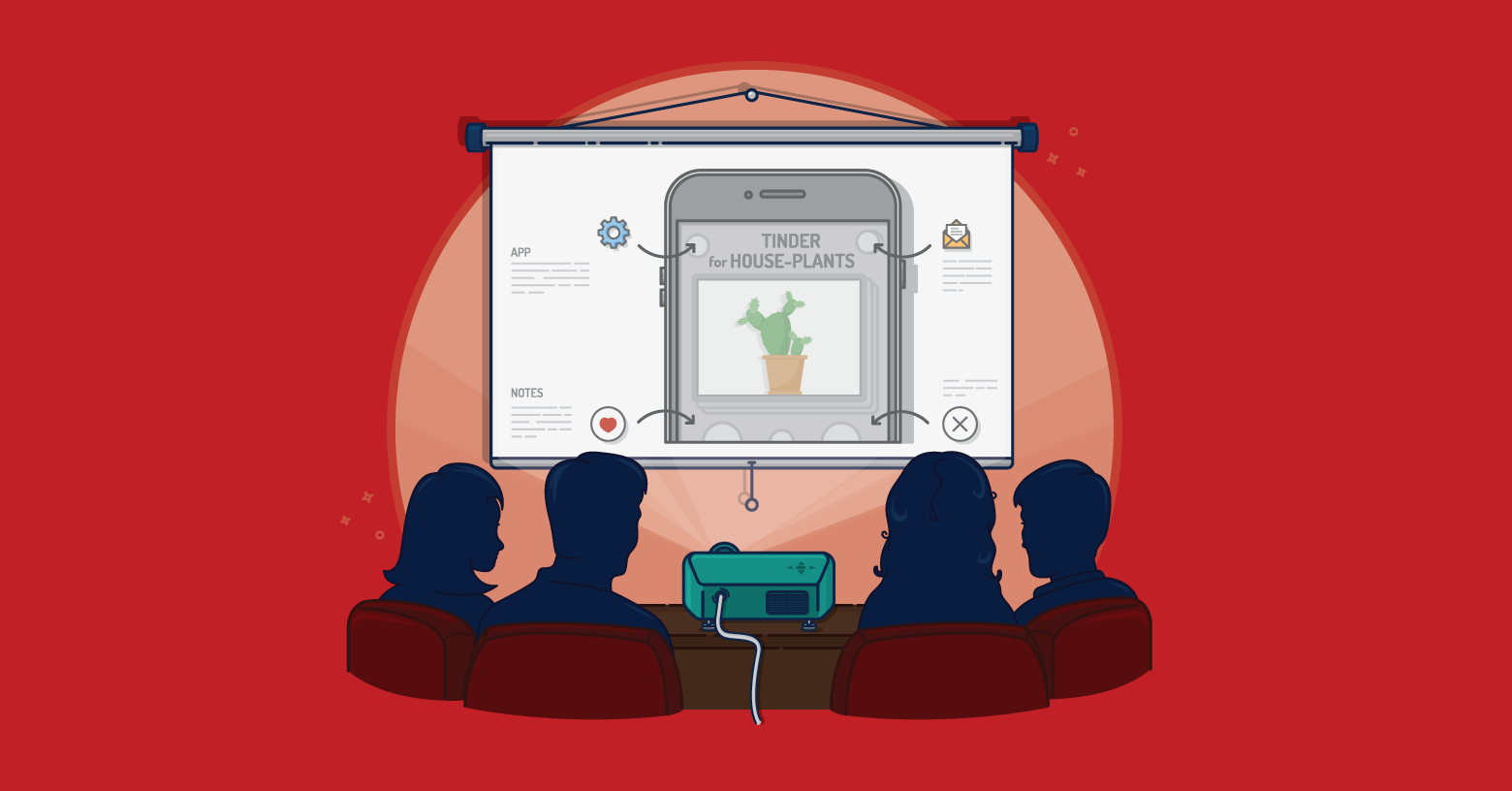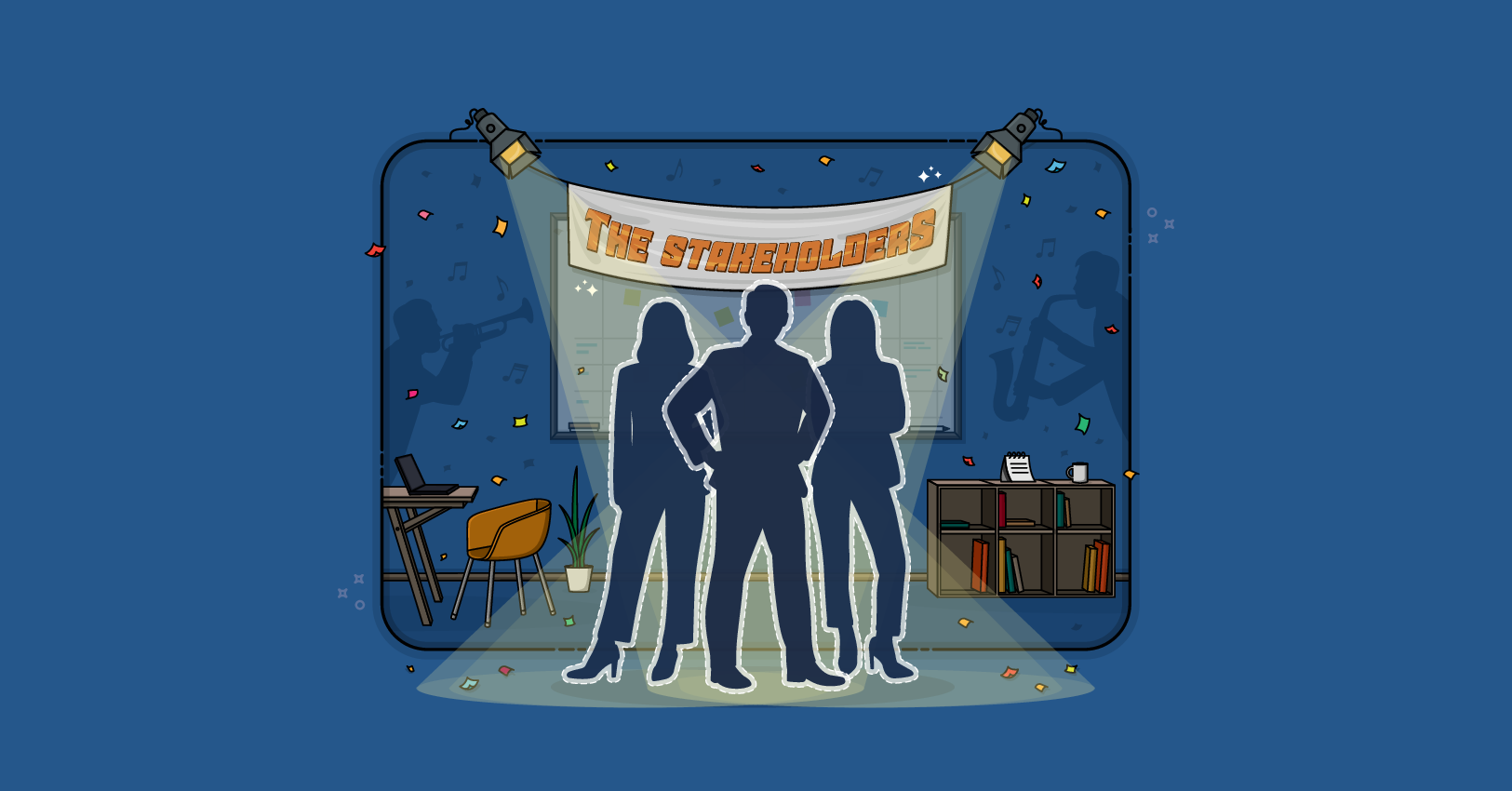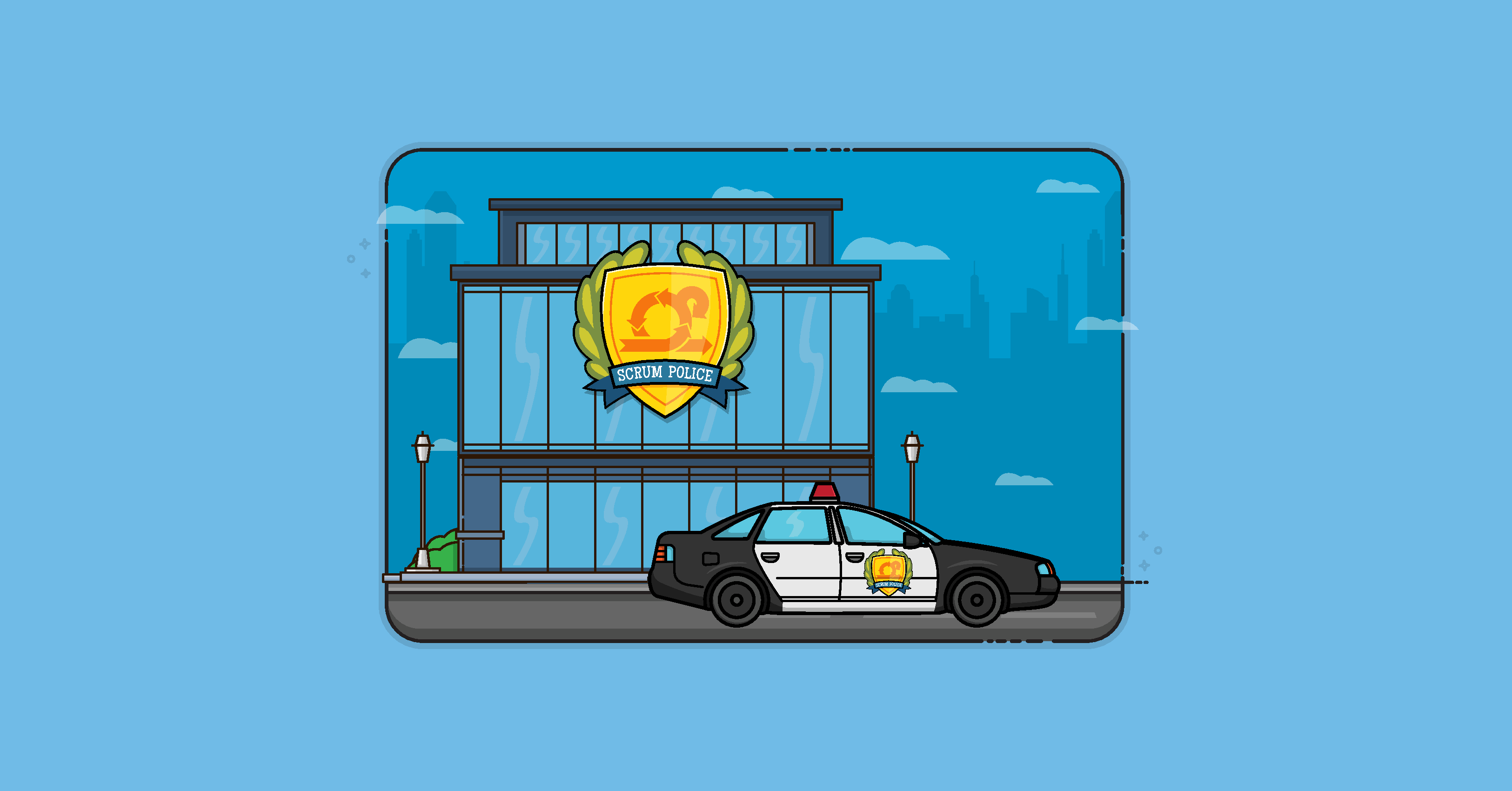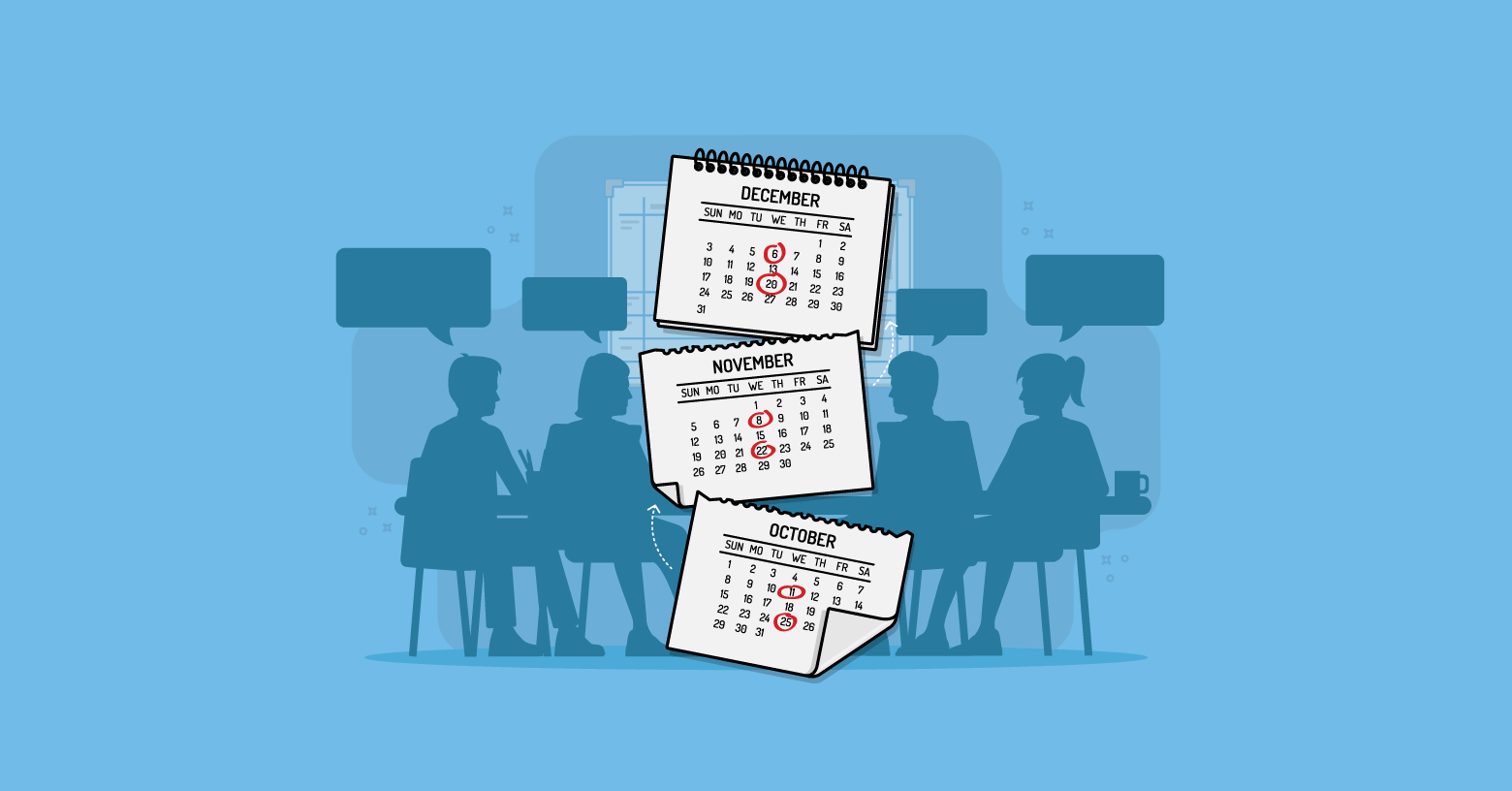Like many companies, Mountain Goat Software is never short on big new ideas to pursue. Our backlog is always growing with ways to serve our community and provide value to you. Another one of those big ideas muscled its way to the top of the backlog earlier this year and in case you missed it, let me tell you all about it.
The Agile Mentors Podcast aims to become the best agile podcast available—to provide you with the most value from the time you spend listening to us. Each week an expert guest joins me, not to be interviewed as much as to discuss a topic that will help you succeed with agile.
Because this podcast is for agilists, each episode is designed to provide value to agilists of all levels, from agile newbies to those who have been a part of the movement for some time. Listen in to find answers to all of your Scrum and agile wonderings and curiosities. If you have a question we haven't covered yet, please let us know.
Series One: The Scrum Podcast Episodes
We launched with a series that would highlight all the individual components of the Scrum framework, not as an exhaustive course of study but just to add some clarity to them, and to provide some answers to your questions. These episodes were designed for those who are new to Scrum as well as those who have years of experience with agile transformation.
Episode #1 - Scrum vs. Agile & Keys to Success with Mike Cohn
We kicked things off very broadly in discussing these two big terms: Scrum and agile. What is the difference between them? You often hear people say “agile Scrum” as if there is a non-agile Scrum. So we dispel some of those myths and shed light on how these terms differ.
My guest to kick us off had to be Mike Cohn. Who else combines such long experience, perspective, and extemporaneous insight? One of my favorite moments from the episode is when Mike and I were discussing common mistakes teams make. Mike said that not everything has to be a user story: "I wrote a book on user stories and even I don't think everything should be a user story....Common sense needs to trump all."
Episode #2 - Succeeding in the Scrum Master Role with Mike Cohn
The second podcast episode starts talking about the Scrum framework with the vital role that serves as a foundation for Scrum teams: the Scrum Master. Since so many people come to the Agile Mentors Community through our CSM classes and other Certified Scrum training at Mountain Goat, we knew a large proportion of our community would want to hear more about the role they play on the Scrum team.
Mike Cohn has taught more Certified Scrum Masters than anyone (since before the term was even coined!) so we knew we had to have him join us again for this episode.
One particular moment resonated with me. I was talking about the changes in attitude I see when project managers make the transition to Scrum Masters. Mike said (and I'm paraphrasing), that project managers tend to be worried about whether the project will succeed. Scrum Masters, on the other hand, should be worried about whether they're making an awesome team out of the people they have, and then project success will follow.
Episode #3 - What Makes a Great Product Owner? with Lance Dacy
In episode #3 we move to another Scrum team role: the product owner. Our CSPO classes have recently seen a noticeable uptick, which tells us more product managers are being asked to work with Scrum teams and that product owners out there are upping their game. I invited Lance Dacy to join me to discuss value and the importance of really meeting your customer’s needs.
Lance has a wealth of experience training and working with product owners, which made him the perfect choice for this topic. Take advantage of our combined years of experience, and listen for nuggets like this one from Lance: "The Product Owner has to start with why: Why am I doing this job, what is my passion, and what are the opportunities in the market that our product can solve?"
Episode #4 - The Developer Role in Scrum with Sherman Gomberg
We wrapped up the roles in Scrum in episode #4 with the developers. As a reminder, when I say developers, I'm not just referring to people who primarily write code. Instead I'm referring to the 2020 Scrum Guide shift to using developer to mean every team member who isn't the product owner or Scrum Master.
While developers sometimes seem to take a back seat to the other two roles, nothing happens on a team without them. As guest Sherman Gomberg says in the episode, “There are more developers than anyone else on the team!” So it’s worthwhile to explore in detail this vital role on any Scrum team.
I asked Sherman to join me for this discussion because he is one of the few trainers that offer the Scrum Alliance Certified Scrum Developer course. Sherman knows the majority role on the team quite well and brings years of experience and insight working with them.
Episode #5 - Scott Dunn
Shares Everything You Need to Run Sprint Planning Like any sprint does, our events section of podcasts kicks off with sprint planning. It’s so important to start your sprint off on the right foot! We cover it early in the podcasts because it’s both crucial and confusable. We wanted to bring some clarity and help teams start strong.
Scott Dunn joined me for this conversation, bringing his long experience training CSMs and CSPOs and coaching teams. He knows how important it is for a team to plan their sprints well and where teams tend to go off the rails in planning.
Episode #6 - How to Make the Daily Scrum More Effective with Julie Chickering
We continued discussing events with the one I think is most misunderstood: the daily scrum. For such a short meeting, it sure does cause lots of problems for organizations. Why is this? And how can you correct some of these common misunderstandings and dysfunctions?
As guest Julie Chickering put it, "It's either the best meeting of the day or the worst!"
Julie teaches both basic and advanced CSM and CSPO classes and has a lot of history working with teams and coaching them to success. I knew she would have practical tips to help you get the most out of your daily scrums.
Episode #7 - The Sprint Review Is Not a Demo with Julie Chickering
We picked things back up with sprint reviews in the next episode. This event is one I often hear people complain about in class as being boring—how can you change that? I wanted to provide that guidance and help underline the most important aspect of the event: you get actual actionable feedback.
Julie Chickering joined me for this episode for many of the same reasons I wanted her on the previous one. With Julie’s coaching and training experience, I knew there would be practical, in-the-trenches tips she’d be able to share to help us understand and profit from this event more fully.
Episode #8 - Sprint Retrospectives with Scott Dunn
We closed out the events in Scrum by discussing the event where a Scrum Master can bring in creativity: the sprint retrospective. The format for this event is wide-open—more so than any other event. That can be exciting and scary at the same time for any Scrum Master.
How do we make the best use of this time and what do we do if the team gets bored with it? The event is crucial: its stated purpose is your team’s improvement.
Scott Dunn came back for this because Scott’s coaching work centers on the concept of continual improvement; I knew he’d be able to bring a variety of ideas to the table.
Episode #9 - Scrum Artifacts with Kert Peterson
The foundation in the Scrum framework that we had yet to address was the three artifacts. We combined these into one show rather than doing one podcast for each because there’s a natural flow between them and it would be difficult to talk about one without the others. From product backlog to sprint backlog to product increment, we detail the importance of each and their salient aspects.
I was thrilled to bring in one of my mentors, Kert Peterson, to have this discussion. Kert learned from one of the authors of Scrum—Ken Schwaber. I knew the history and insight he would bring to the discussion would help us use these artifacts for greater efficiency, creativity, and harmony.
What's next?
We continue to shed light on other vital topics of interest to Scrum teams. Our guests keep flowing in and we have some exciting plans about future episodes.
This is where you come in! Just like any Scrum team needs feedback from customers and stakeholders, we need your feedback on where we go next.
- What are the topics you are most interested in hearing about in the podcast?
- What questions do you have that need answers?
- Are there guests you would love to hear on the show?
There are two different ways you can connect with us and let your voice be heard. Firstly, email us at podcast@mountaingoatsoftware.com. Secondly, for each post we have a discussion topic in the Agile Mentors Community discussion boards.
Let us know your thoughts, feedback, and suggestions in any of these places. We are interested in your ideas and want to make this the best agile podcast!
Last update: February 12th, 2025

